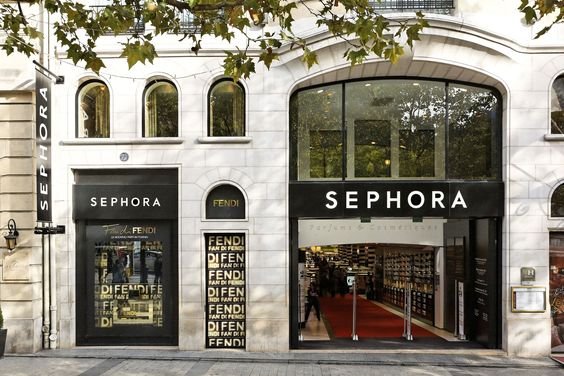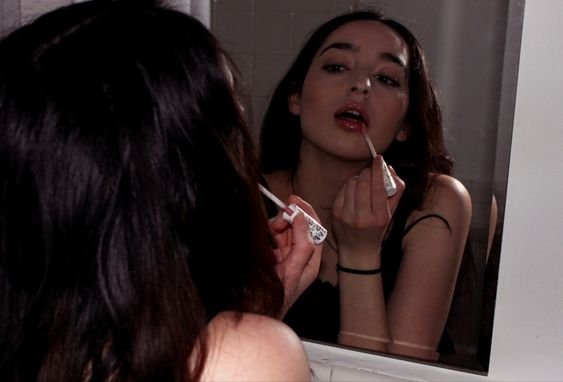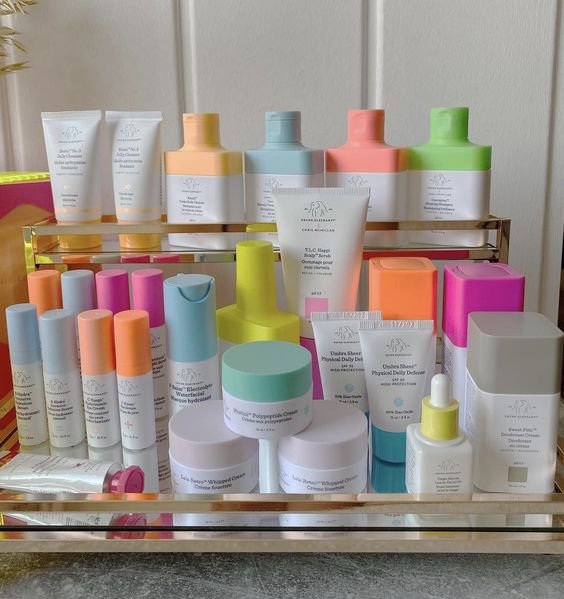Confessions of a Sephora Insider
We all know Sephora as the go-to makeup store. It’s a one-stop shop for all the top skincare, haircare, and fragrance brands, from Yves Saint Laurent to Makeup by Mario. Owned by one of the leading beauty conglomerates of the world, Moët Hennessy Louis Vuitton (LVMH), Sephora is not just a store—it represents affordable luxury and prestige. Social media influencers like Alix Earle showcase their skincare, makeup, and hair care routines, enhancing the allure of Sephora’s products while driving the company’s profit. As someone who works for the company and plans to continue my path toward corporate, Sephora has allowed me to observe how social media influences the self-image of young girls.
I remember purchasing my first products from Sephora at the age of twelve. Growing up, I dealt with bad acne and always thought that, to be beautiful, I needed to cover up my skin with foundation. I would wear it as a mask to hide my acne. I loved social media and looked up to so many gorgeous and “perfect” influencers, which made me feel like I should alter my features so I could look more like them. While it was not the influencers who were telling me to do this, I felt this pressure to look for a certain way to attract guys or be deemed “beautiful.” The first time I got my makeup done professionally was at Sephora. Now that I work there, the company holds profound sentimental value. And yet, I have experienced a sense of disillusionment as I have observed how the company perpetuates the beauty norms imposed on young girls. As I have worked at Sephora, I have noticed how girls as young as ten come in, asking for products used by people twice their age. “How do they know about these products?”, you may ask. They saw them on TikTok.
Brands like Makeup by Mario, Dior, Rare Beauty, Drunk Elephant, Glow Recipe, and Summer Fridays are just a few of the most sought-after brands marketed to young girls online. Drunk Elephant is extremely popular with tweens and college students, especially the bronzing drops. I’ve noticed many girls who are not yet in their teens come in and ask for Retinol-based products simply because some of their favorite influencers use them. Retinol is a byproduct of Vitamin A and is used for cell regeneration. Using it at a young age isn’t necessary since many young people don’t need cell regeneration, and it can cause extreme irritation if misused. Even products containing BHA and AHA, which are common in most skincare products, are potentially harmful. Beta hydroxy and alpha hydroxy acids are chemical exfoliants that remove dead skin and improve dark spots. Using these exfoliants on practically perfect skin can potentially irritate it and cause an imbalance in the skin’s pH levels.
There is nothing wrong with wanting to get into skincare at a young age; it’s encouraged. Acids like hyaluronic acid and niacinamide are perfect for beginners because they improve water retention, which helps keep the skin hydrated while also stopping excess oil production. It is always essential to do research before purchasing a product because each one is used for a specific skin concern and age.
Influencers have the power to reach audiences and influence their health and wellness habits by showcasing the personal routines they curated for themselves. It’s easy to get caught up in the allure of these products, but researching products and purchasing them out of necessity rather than influence can help protect your skin in the long run.
Strike Out,
Writer: Lauren Butrum
Editor: Noelle Knowlton
Tallahassee




